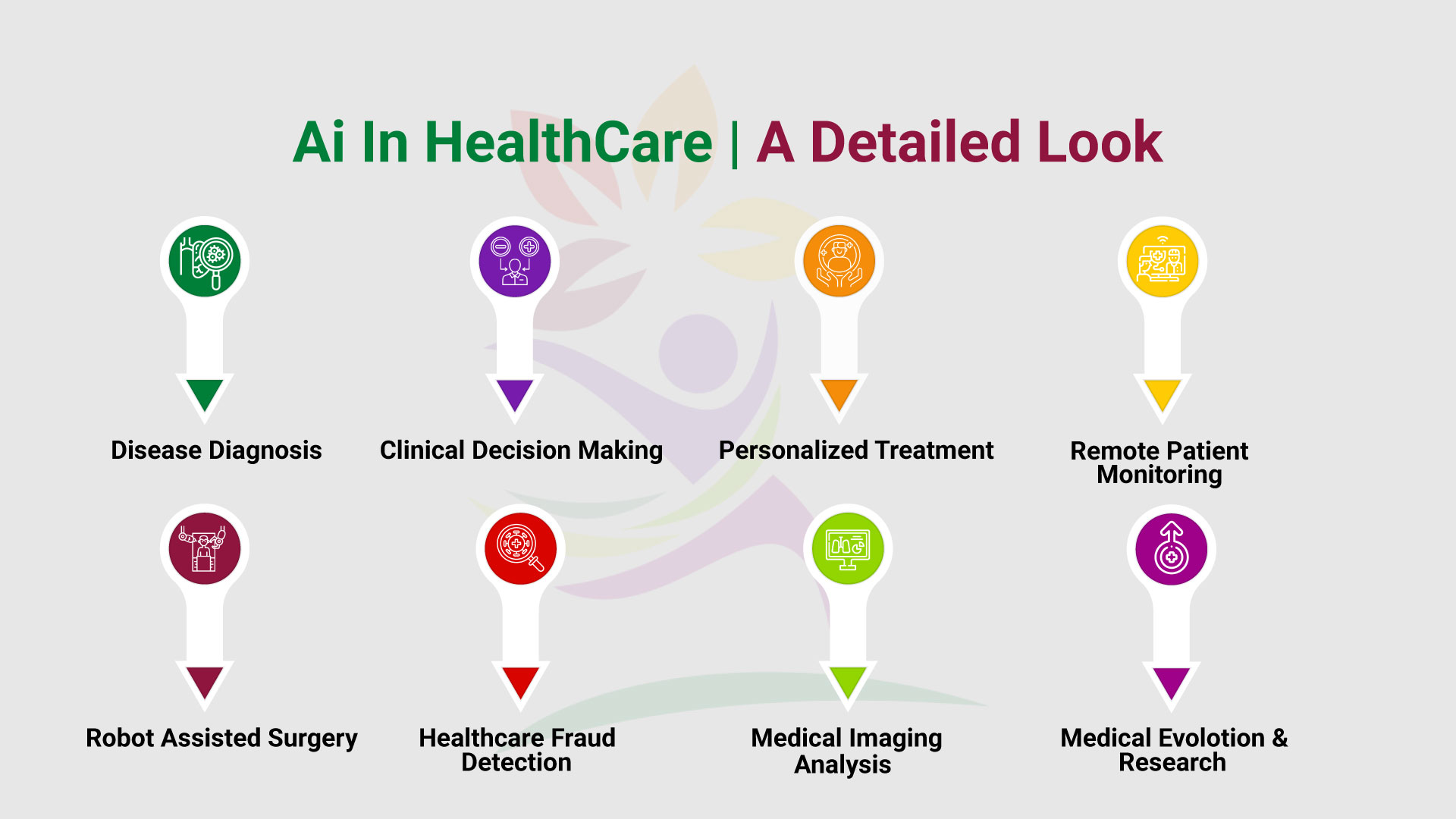Artificial intelligence (AI) has proved to be a game changer in this swiftly changing healthcare industry, revolutionizing the uses of AI in healthcare. It changes how diseases are being recognized, how patients are dealt with, and how healthcare systems are managed.
Health care has improved dramatically to improve awareness and care. This article examines the top ten use cases of AI in healthcare, exploring the diverse uses of AI in healthcare. It also explains how these applications can improve patient outcomes, deliver personalized medicine, and ultimately change the medical system. Here are the top 10 use cases for AI in healthcare.
Check Also: Top 10 Examples of AI in Healthcare
Table of Contents
ToggleUses of AI in Healthcare (Top 10)
Disease Diagnosis
Diagnosis is the most important aspect of health care. It affects decisions during treatment and also greatly affects patient outcomes.
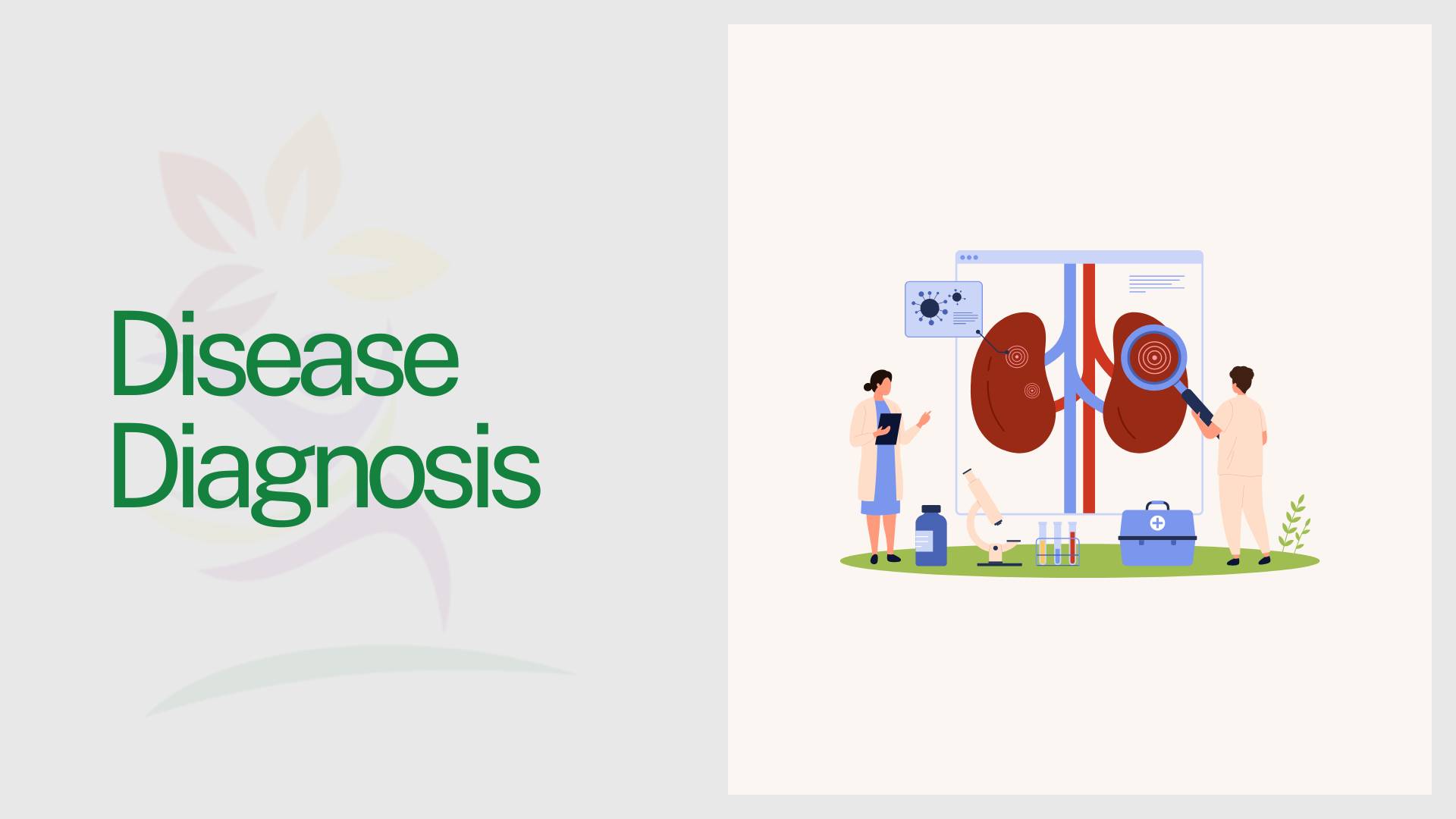
AI-powered algorithms revolutionize disease diagnosis by analyzing medical images, genetic data and patient records with disproportionate accuracy. These technologies can detect abnormalities in medical images such as X-rays, MRIs and CT scans, and it help radiologists make an accurate diagnosis.
By adopting all these machine learning techniques, AI systems are improving day by day in the accuracy of disease diagnosis. The early detection of diseases is also possible such as cancer thereby improving patient outcomes.
Robot-Assisted Surgery
Robotic-assisted surgery (RAS) is a surgical technique. It uses a robotic system to help surgeons and assist them to perform surgical operations with precision and control.
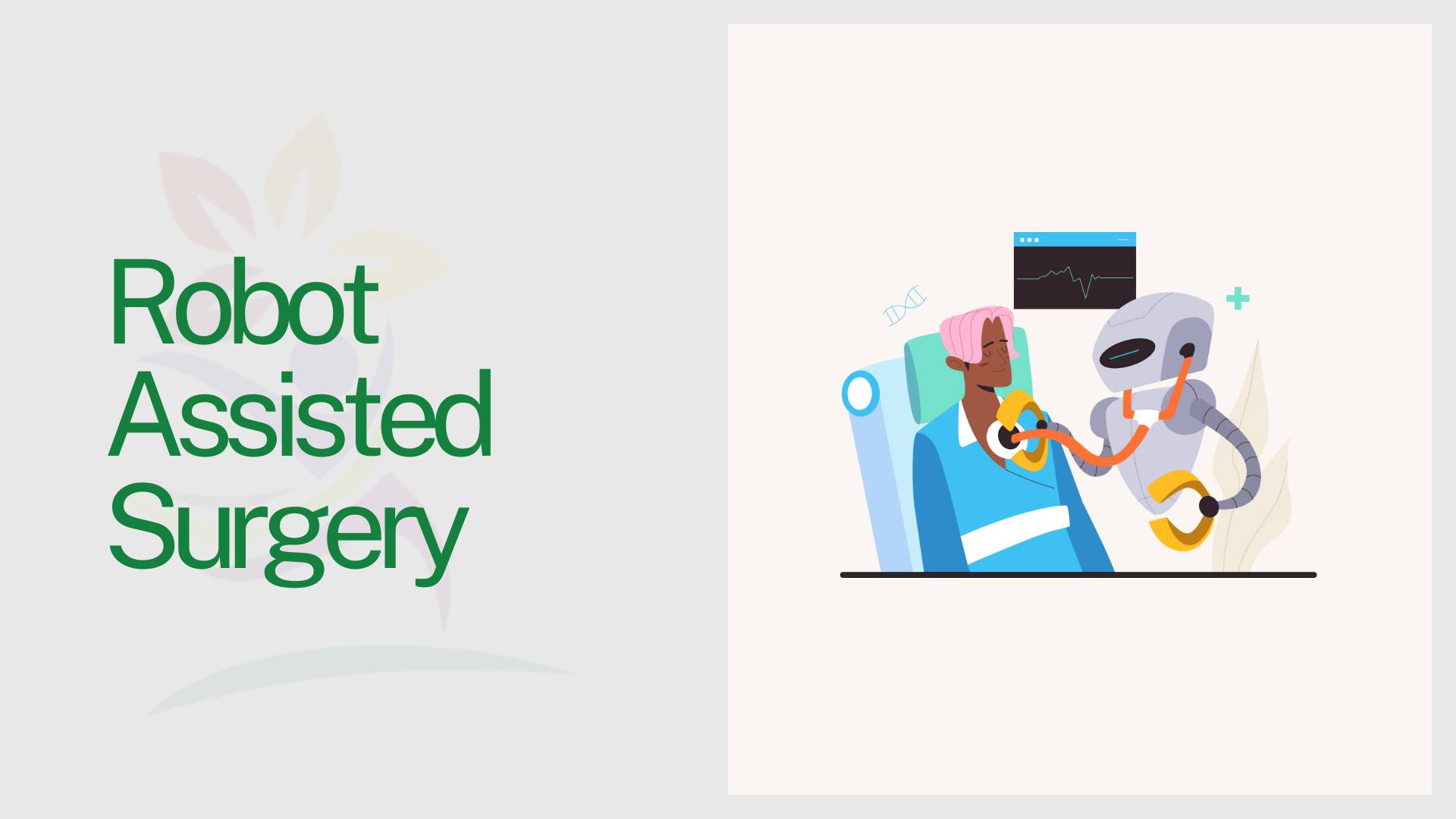
In general, it consists of a robotic arm equipped with surgical instruments that the surgeon meat console and so on. Robotic systems driven by AI are transforming surgery by increasing precision, reducing human error and allowing for less invasive procedures.
Surgeons are now able to skillfully perform complex procedures and its widespread use through the use of AI robotic platforms. These systems will provide real-time guidance, enabling surgeons to make more informed decisions throughout the procedure, leading to better surgical outcomes for patients and faster postoperative recovery.
Personalized Treatment
AI algorithms analyze vast amounts of patient data which include medical history, genetics and life history, to tailor treatment plans to individual patients’ needs.

By recognizing the set patterns and predicting treatment responses, the AI-powered system enables healthcare professionals to provide personalized and targeted treatments efficiently, improve patient outcomes positively and reduces side effects.
Remote Patient Monitoring
AI-powered far-off tracking answers permit healthcare carriers to display patients’ fitness repute in real-time outdoor of traditional medical settings. This is possible with the help of smart health kiosks and digital clinics.
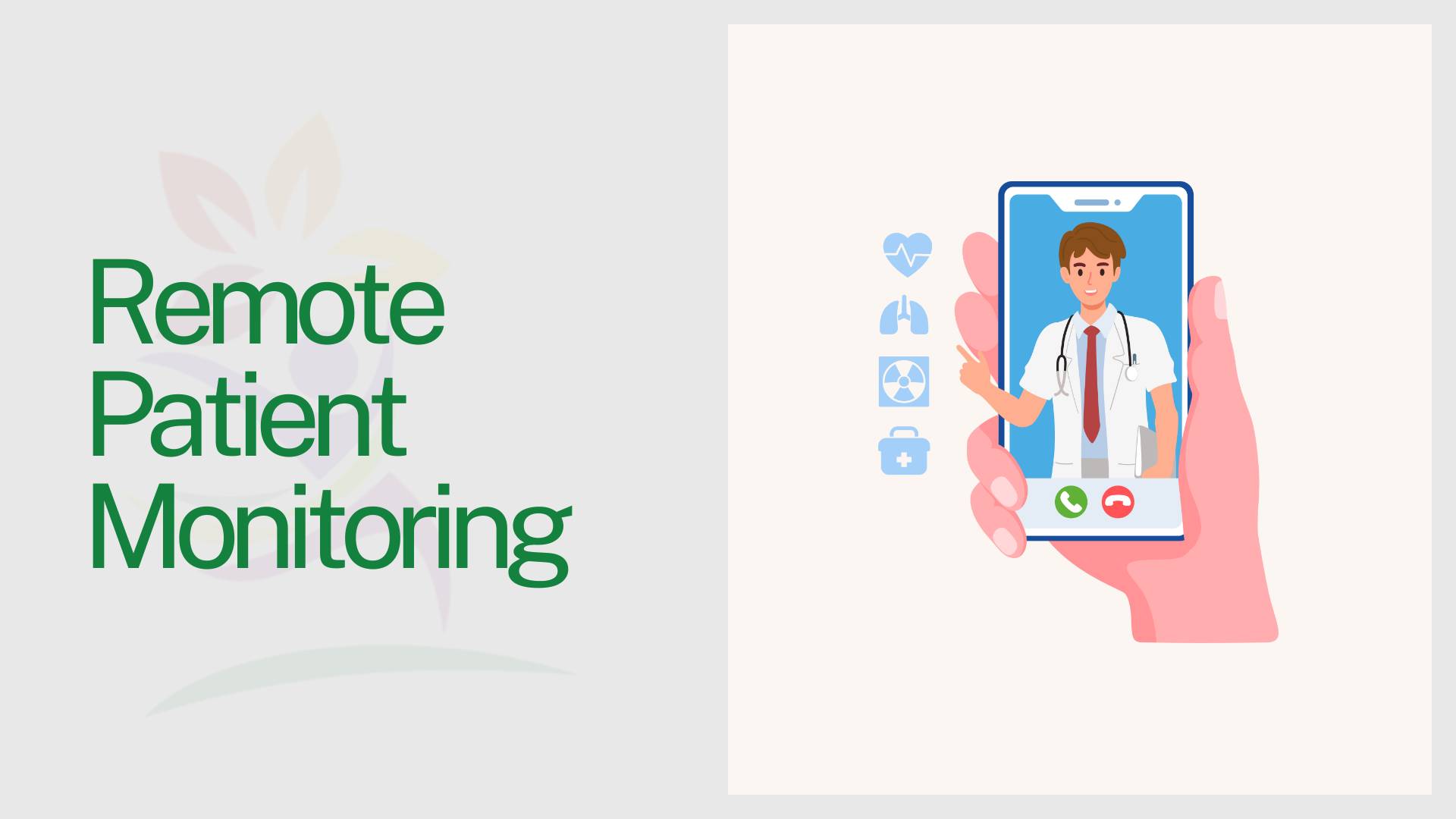
Wearable gadgets are equipped with AI algorithms, which screen vital signs and symptoms, detect abnormalities, and immediately alert healthcare providers to ability fitness troubles.
This faraway technique improves patient engagement and allows for early intervention, prevents medical institution readmissions and decreases healthcare costs.
Clinical Decision-Making
AI-based scientific decision support systems assist healthcare specialists make proof-based totally choices through analyzing affected person records, clinical literature, and clinical guidelines.

This gadget provides insights, guidelines, and actionable chance tests, and allows physicians to quick. They also are empowered to make informed decisions successfully. By streamlining scientific workflows and reducing cognitive load, AI-powered choice aid tools improve care best and patient safety.
Healthcare Fraud Detection
AI algorithms play an important role in preventing healthcare fraud by analyzing large amounts of healthcare data to identify suspicious patterns and anomalies that indicate fraudulent activities.
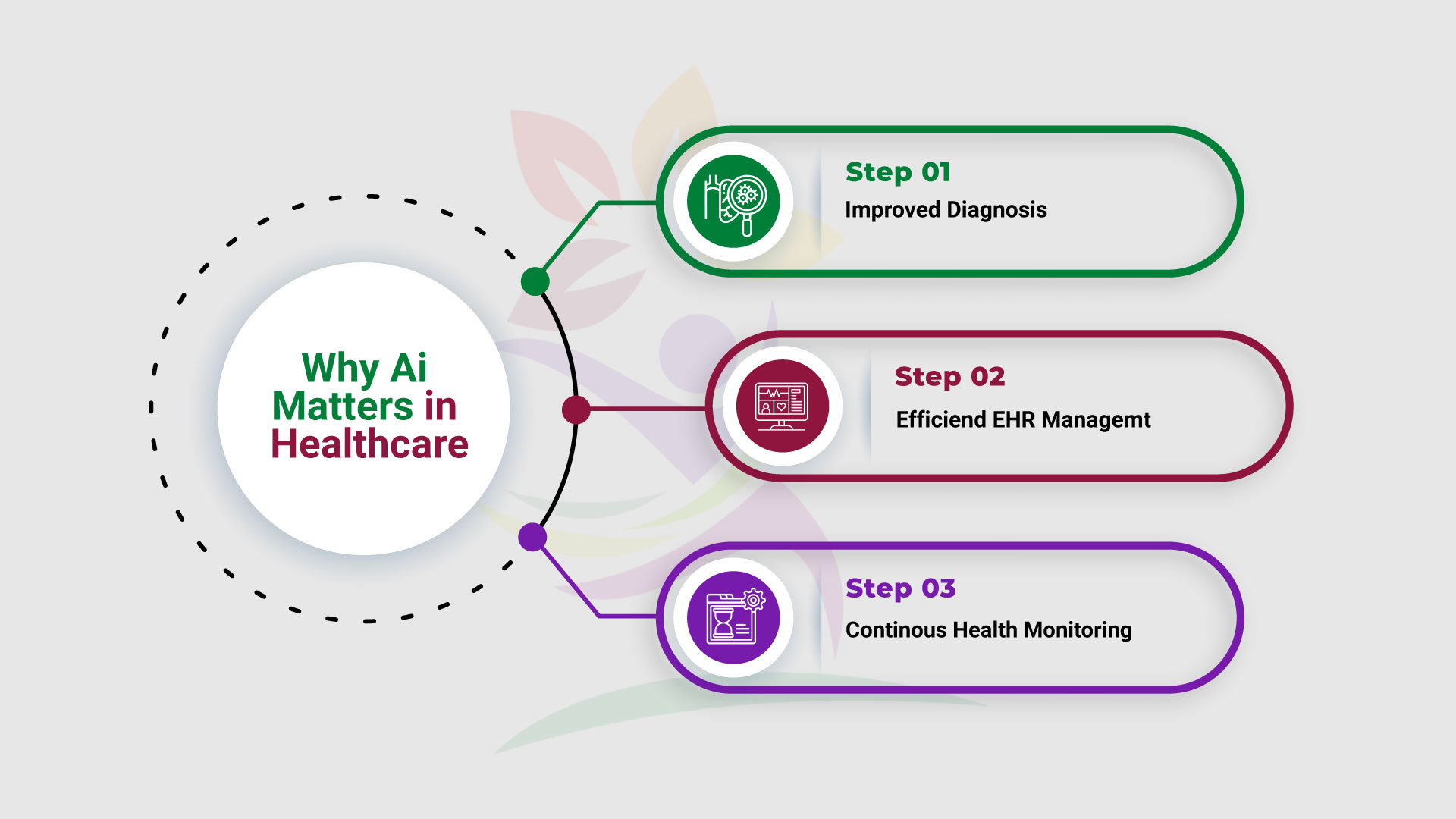
These algorithms flag potentially fraudulent, erroneous data of payment and abuse by recognizing that payers and providers can perform tasks legitimately. By using AI to detect fraud, healthcare organizations can protect finances, ensure compliance, and maintain the integrity of healthcare systems.
Medical Imaging Analysis
This is one the best uses of ai in healthcare. AI-powered medical image analysis automates the interpretation of radiological images such as CT scans, MRIs, and ultrasounds to enable faster diagnosis and treatment planning.
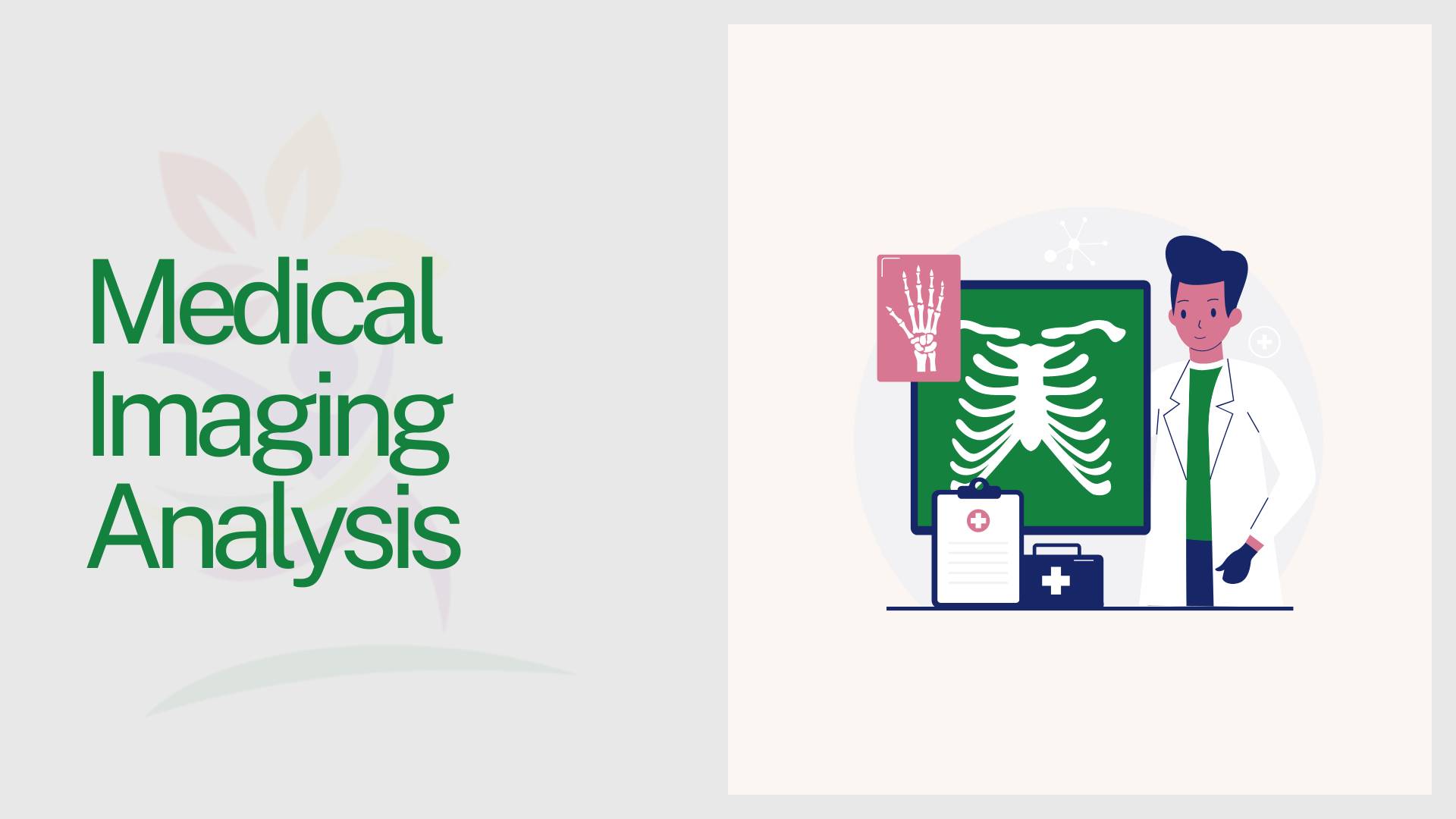
Deep learning systems can identify and classify abnormalities in greater medical image accuracy, helping radiologists prioritize data and reduce interpretation time.
By increasing the capabilities of radiologists, AI-powered imaging solutions improve diagnostic accuracy and efficiency, ultimately benefiting patient care
Integration of AI in Electronic Health Records (EHR)
AI technology has been incorporated into electronic health record systems to enhance data management, documentation and decision support.
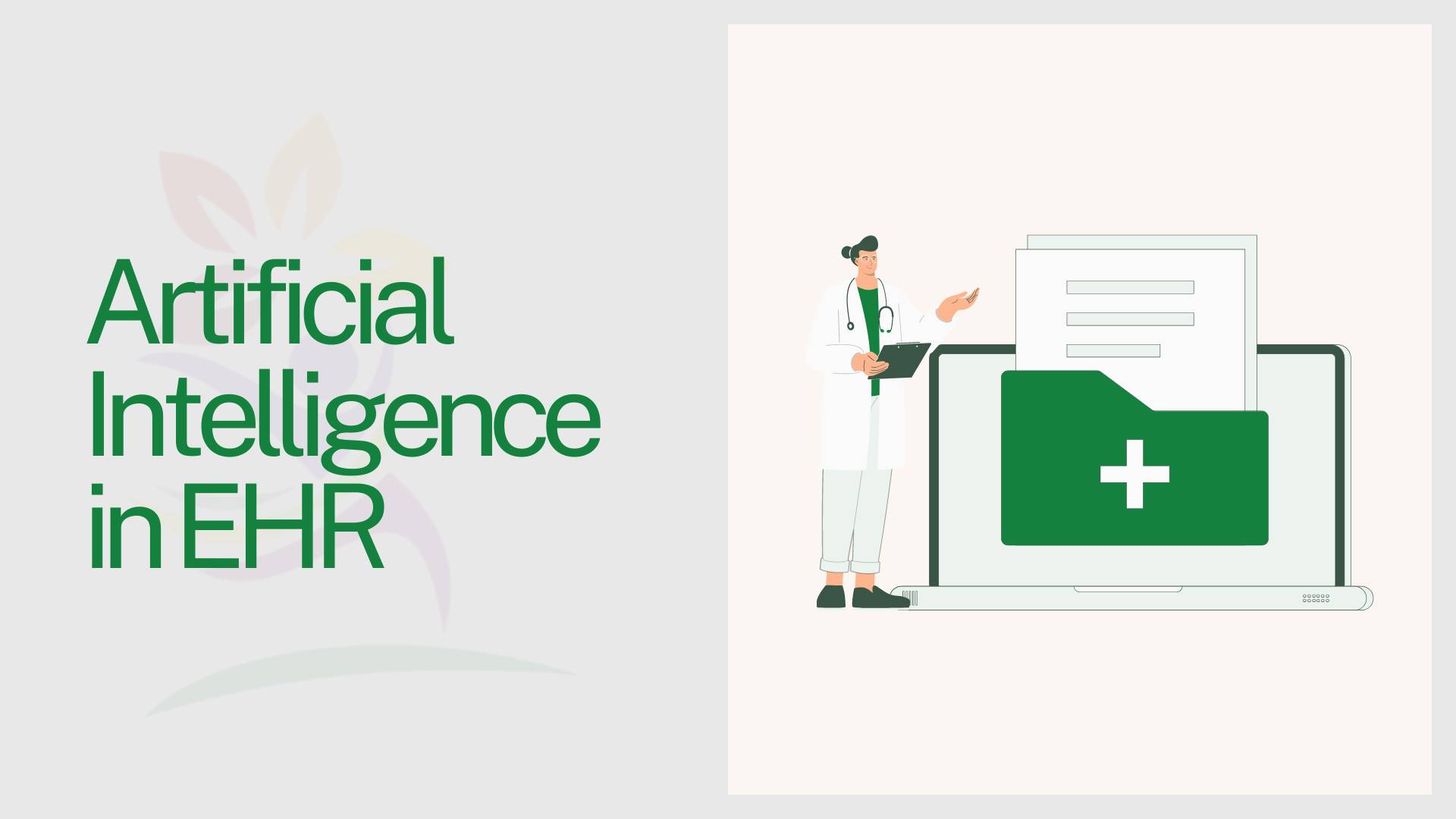
Natural language processing (NLP) systems extract relevant information from raw clinical data, lab reports, and imaging studies, making patient data accessible and actionable.
By automating routine tasks and providing real-time insights, AI-enabled EHR systems will deliver more accurate clinical documentation, more efficient workflows, and improved patient care.
Predictive Analytics for Patient Outcomes
AI-driven predictive analytics models predict patient outcomes, hospital readmissions, and disease progression based on historical patient data, and clinical variables.
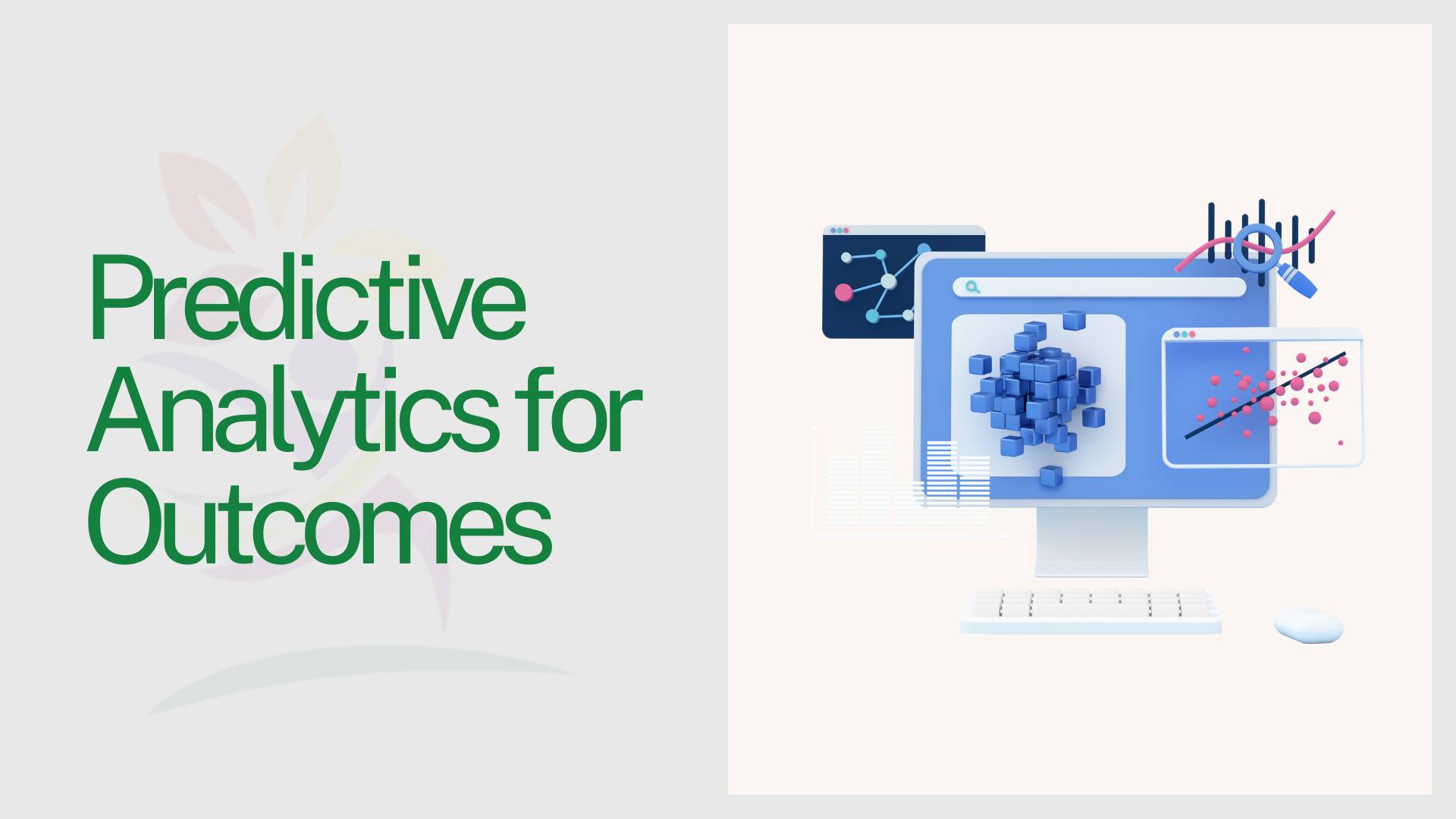
These models identify high-risk patients. As a result, resources and interventions take precedence, thereby optimizing resources so that health care providers can deliver quality care effectively.
By using predictive analytics, healthcare organizations can aggressively manage public health, reduce healthcare costs, and improve patient satisfaction and outcomes. FITWELLHUB is a prominent AI-based telemedicine company in Pakistan offering telehealth services.
Medical Evolution and Research

AI accelerates medical research and innovation by analyzing large biomedical data, discovering biomarkers of diseases, identifying novel therapeutic targets.
Machine learning algorithms Genomics, proteomics, clinical trial data analysis disease mechanisms, drug interactions and response to therapy by opens the investigation.
AI-powered research facilitates information-driven discoveries and insights, advancing medical technology, collaboration, and scientific breakthroughs. Ultimately, this leads to improved patient care and positive outcomes.
Conclusion
Integrating AI into healthcare holds high-quality promise for transformation so one can transform scientific practice, beautify patient results, and enhance healthcare transport. From virtual diagnosis and remedy to surgery and studies, the AI-powered era is transforming each component of the healthcare enterprise.
As AI continues to evolve and mature, its transformative impact on healthcare is expected to grow exponentially. This will usher in a new era of precision medicine, personalized care, and improved patient well-being through digital clinics.
Frequently Asked Questions
A specific scenario or application utilizes a technology, product, or solution to address a particular problem or achieve a specific goal, defining a use case example.
Medical technology enhances patient care, boosts efficiency, and drives research through innovations like electronic health records, medical imaging, and telemedicine.
AI significantly contributes to personalized medicine by analyzing huge amounts of affected patient records. Therefore, this allows for customizing treatment plans based on each patient’s requirements, considering genetic data and medical history
In healthcare, AI actively analyzes disorders, such as detecting diabetic retinopathy from retinal snapshots, thereby enhancing accuracy and efficiency.

